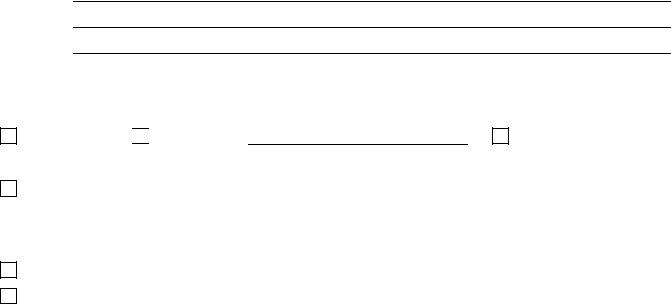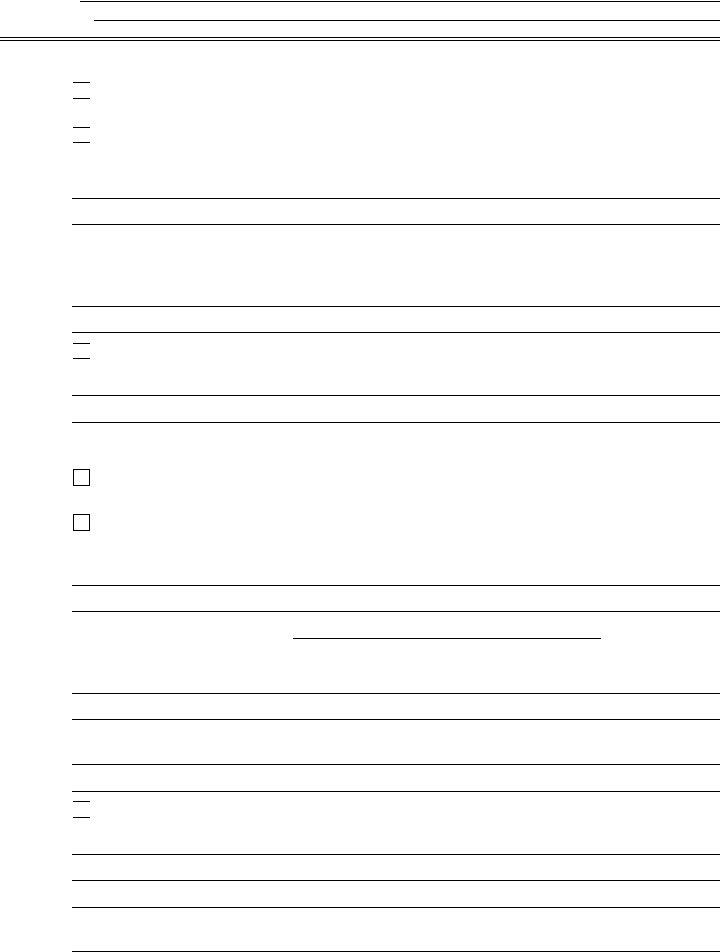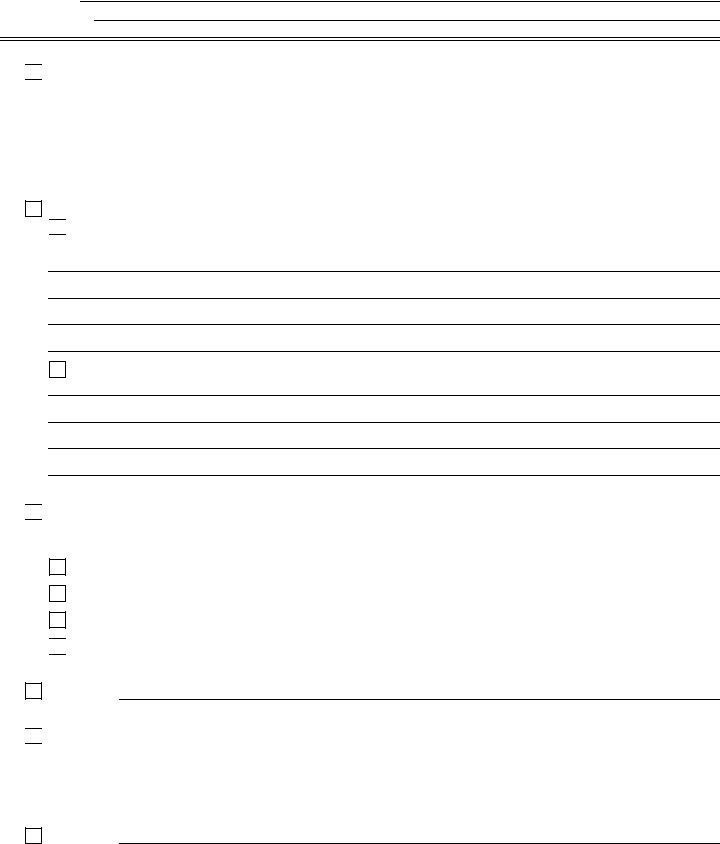The NHJB-2064-FS form, issued by the State of New Hampshire Judicial Branch, serves as a crucial document for parents navigating the complexities of divorce, legal separation, or any legal case pertaining to the custody and care of their children. Known as the Parenting Plan, this form encompasses a wide array of decisions and arrangements that parents must consider and agree upon for the welfare of their children. It is meticulously designed to handle everything from decision-making responsibilities and residential arrangements to detailed schedules for holidays, vacations, day-to-day living, and even supervised parenting times. Reflecting the state’s commitment to the best interests of the child, it upholds a core policy that emphasizes the importance of frequent and continuous contact with both parents whenever possible. The form acknowledges the dynamic nature of family life by allowing for temporary, final, or modified plans, accommodating the family's needs until all issues are resolved or incorporating the arrangements into the court's final order. Additionally, it aims to foster a cooperative environment where parents can craft a plan with professional help, avoiding contention and focusing on their children's needs. The ultimate goal of the NHJB-2064-FS form is to support the creation of a structured but flexible parenting plan that facilitates a healthy, nurturing, and stable environment for children going through the transition of their parents' separation or divorce.
| Question | Answer |
|---|---|
| Form Name | Form Nhjb 2064 Fs |
| Form Length | 8 pages |
| Fillable? | No |
| Fillable fields | 0 |
| Avg. time to fill out | 2 min |
| Other names | nhjb 2064 fs parenting plan california form |

THE STATE OF NEW HAMPSHIRE
JUDICIAL BRANCH
http://www.courts.state.nh.us
Court Name:
Case Name:
Case Number:
PARENTING PLAN
This parenting plan is: (Choose one)
Agreed upon Proposed by
(parent’s name)
Developed by Court
This parenting plan is: (Choose one)
Temporary. The completed paragraphs apply until the case is concluded. If you are requesting a temporary order on parenting issues, you should include as many of these parenting plan topics as you will need to carry your family through until all parenting issues are resolved.
Final. All completed paragraphs shall be incorporated in the Court’s final order.
Changing a prior final parenting plan or a prior final custody/visitation order.
The parental rights and responsibilities statute, RSA
Because children do best when both parents have a stable and meaningful involvement in their lives, it is the policy of this state, unless it is clearly shown that in a particular case it is detrimental to a child, to:
(a)Support frequent and continuing contact between each child and both parents.
(b)Encourage parents to share in the rights and responsibilities of raising their children after the parents have separated or divorced.
(c)Encourage parents to develop their own parenting plan with the assistance of legal and mediation professionals, unless there is evidence of domestic violence, or child abuse/neglect.
(d)Grant parents and courts the widest discretion in developing a parenting plan.
(e)Consider both the best interests of the child in light of the factors listed in RSA
This parenting plan is for the following child(ren) born to, or adopted by, the parties: |
|
||||
|
Full Name |
Date of Birth |
|
Full Name |
Date of Birth |
1. |
|
|
2. |
|
|
3. |
|
|
4. |
|
|
5. |
|
|
6. |
|
|
Page 1 of 8 |

Case Name:
Case Number:
PARENTING PLAN
A.
1. Major Decisions: These include, but are not limited to, decisions about the child(ren)’s
education,
(a) Joint
Note: If parents have joint
Legal Residence of |
|
|
(parent’s name) |
|
|
|
|
|
|
|
|
|
|
|
|
|
|
|
|
Legal Residence of |
|
|
(parent’s name) |
|
|
|
|
|
|
|
|
|
|
|
|
|
|
|
|
The court finds that there is a history of domestic abuse or stalking or that including such
information would not be in the best interest of the child(ren). |
|
(b) Sole |
(parent’s name) shall have sole |
2.
3.Other Provisions:
B. Residential Responsibility & Parenting Schedule:
1.Routine schedule: (Choose one)
(a) |
The child(ren) shall reside solely with |
|
(parent’s name). |
|
(b) |
The child(ren) shall reside primarily with |
|
(parent’s name), |
|
except for the following days and times when the other parent shall have parenting time with the child(ren):
(c) The above choices do not fit this parenting situation. Instead, the parents shall have equal or approximately equal residential responsibility for the minor child(ren) as follows:
Page 2 of 8 |

Case Name:
Case Number:
PARENTING PLAN
2.Holiday and Birthday Planning: (Choose (a), (b), or (c))
(a) No holiday and birthday schedule shall apply. The routine schedule set forth above shall apply.
(b) Holiday and birthday parenting time shall be as the parties agree.
(c) The holidays and birthday(s) listed below should be shared as described. Specify start and end times and days/dates as necessary. (For example, Thanksgiving: One
Mother’s Day
Father’s Day
July 4th
Thanksgiving
Christmas Eve
Christmas Day
Child(ren)’s Birthday(s)
One Parent’s Birthday
Other Parent’s Birthday
Other religious, civil and family celebrated special occasions:
3.
(a) No
(b) The parent exercising parenting time on the weekend before a Monday holiday shall have parenting time on that Monday holiday.
(c) The
M. L. King Jr. Civil Rights Day
Presidents’ Day
Memorial Day
Labor Day
Columbus Day
Other
Page 3 of 8 |

Case Name:
Case Number:
PARENTING PLAN
4.Vacation Schedule:
(a) December Vacation: (Choose one)
(1) No December vacation schedule shall apply. The routine schedule set forth above shall apply.
(2) The parent exercising parenting time with the child(ren) on Christmas Eve (as outlined above) shall have the following additional parenting time with the child(ren) over the December vacation:
The parent exercising parenting time with the child(ren) on Christmas Day (as outlined above) shall have the following additional parenting time with the child(ren) over December vacation:
(3) The above choices do not fit this parenting situation. Instead, the residential schedule for the child(ren)’s December vacation shall be as follows:
(b)February, April, and Summer Vacations. Specify the day of the week vacation starts and ends, if necessary. (Choose one)
(1) |
No February, April, or summer vacation schedule shall apply. The routine |
||
schedule set forth above shall apply. |
|
|
|
(2) |
The child(ren) shall reside with |
|
(parent’s name) |
during February vacation, except for the following days and times when the child(ren) shall be with the other parent:
The child(ren) shall reside with(parent’s name)
during April vacation, except for the following days and times when the child(ren) shall be with the other parent:
The child(ren)’s summer residential schedule shall be as follows:
(3) The above choices do not fit this parenting situation. Instead, the residential schedule for the child(ren)’s February, April, and summer vacations shall be as follows:
(c) Other Vacations - describe the schedules for any other vacations:
Page 4 of 8 |

Case Name:
Case Number:
PARENTING PLAN
5.Supervised Parenting Time: (Choose one)
(a) Not applicable.
(b) The residential schedule is subject to the restrictions or limitations set out as follows:
6.Other Parental Responsibilities:
Each parent shall promote a healthy, beneficial relationship between the child(ren) and the other parent and shall not demean or speak out negatively in any manner that would damage the relationship between either parent and the child(ren).
Neither parent shall permit the child(ren) to be subjected to persons abusing alcohol or using illegal drugs. This includes the abuse of alcohol or the use of illegal drugs by the parent.
The parties agree to, or the court establishes, the following additional expectations:
(Choose all that apply)
(a) A parent requesting a temporary change to the parenting schedule shall act in good faith and ask the other parent about such change as soon as possible. The parents are expected to fairly adjust parenting schedules when family situations, illnesses, or other commitments make modification reasonable.
(b) If a parent requires child care by some person who does not reside in his or her
residence, for a period reasonably expected to last longer than hours, then the other parent shall be offered the opportunity to parent the child. This section does not apply to regularly scheduled day care.
(c) Each parent shall supply the appropriate child(ren)’s clothing for them for their scheduled time with the other parent. These clothes are to be considered the child(ren)’s clothes and shall be returned with the child(ren).
(d) Each parent shall be responsible for ensuring that the child(ren) attend regularly scheduled activities, including but not limited to sports and
(e) As the child(ren) get older, their individual interests may impact the parenting schedule set forth in this parenting plan. Each parent shall be flexible in making reasonable adjustments to the parenting schedule as the needs and interests of their maturing children require.
(f) Other Parenting Responsibilities:
C. Legal Residence of a Child for School Attendance: (Choose one)
1. The children shall attend school in the school district where the parent with sole or primary residential responsibility resides. Under this plan, that parent is
2. This parenting plan is for equal or approximately equal periods of residential responsibility, and so the child(ren)’s legal residence for school purposes shall be with
|
|
(parent’s name). |
|
3. Pursuant to RSA 193:12, II(a)(2) the parents agree that their child’s legal residence for |
|||
school attendance purposes shall be |
|
|
(parent’s name) residence. See |
the attached [Agreement/Order]. Each parent shall furnish a copy of the agreement to the school district in which the parent resides.
Page 5 of 8 |

Case Name:
Case Number:
PARENTING PLAN
D. Transportation and Exchange of the Child(ren): (Choose all that apply)
1. Transportation arrangements for the child(ren) between parents shall be as follows:
2. Unless both parents agree upon a different meeting place, the exchange of the child(ren) shall be at:
3. Transportation costs shall be shared as follows:
4. Other
E.Information Sharing and Access, Including Telephone and Electronic Access: Unless there is a court order stating otherwise:
Both parents have equal rights to inspect and receive the child(ren)’s school records, and both parents are encouraged to consult with school staff concerning the child(ren)’s welfare and education. Both parents are encouraged to participate in and attend the child(ren)’s school events.
Both parents have equal rights to inspect and receive governmental agency and law enforcement records concerning the child(ren).
Both parents have equal rights to consult with any person who may provide care or treatment for the child(ren) and to inspect and receive the child(ren)’s medical, dental or psychological records, subject to other statutory restrictions.
Each parent has a continuing responsibility to provide a residential, mailing, or contact address and contact telephone number to the other parent.
Each parent has a continuing responsibility to notify the other parent of any emergency circumstances or substantial changes or decisions affecting the child(ren), including the child(ren)’s medical needs, as close in time to the emergency circumstance as possible.
1.
The children shall be given privacy during their conversations with either parent. While the child(ren) reside with one parent, the other parent shall be permitted to speak by telephone with the child(ren):
(a) At reasonable times.
(b) At the following times only:
(c) Other:
2.
(a) Both parents and child(ren) shall have the right to communicate in writing or by e- mailing during reasonable hours without interference or monitoring by the other parent.
(b) Specific agreements/orders regarding written or
Page 6 of 8 |

Case Name:
Case Number:
PARENTING PLAN
F. Relocation of a Residence of a Child: (Choose one)
1. The relocation of a child’s residence in which s/he lives at least 150 days per year is governed by RSA
2. This parenting plan shall expressly govern the relocation issue as follows: (Choose one)
(a) In addition to the provisions of RSA
(b) Instead of RSA
G. Procedure for Review and Adjustment of Parenting Plan: (Choose one)
1. The parents shall meet as set out below to review this parenting plan and the
court. (Each should keep a copy.) |
Choose (a), (b), (c), or (d). |
||
(a) Meetings shall be in |
|
|
(month). |
(b) Meetings shall be yearly.
(c) Meetings shall be every 2 years.
(d) Meetings shall not be on a set schedule but shall be as often as necessary for the benefit of the child(ren).
2. Other:
H. Method(s) for Resolving Disputes: (Choose one)
1. In the future, if the parents have a disagreement about parenting issues, the parents shall try to work it out in the best interest of the child(ren). If the parents are unable to work out the disagreement, they shall seek the help of a neutral third party to assist them. Only if the parents are unable to work out the disagreement after seeking third party assistance will they ask the court to decide the issue.
2. Other:
I. Other parenting agreements important to the parents or child(ren) are listed below or are
set forth in the |
|
number of attached pages. |
|
|
|
|
|
|
|
|
|
|
|
|
|
Page 7 of 8 |

Case Name:
Case Number:
PARENTING PLAN
Date
Date
Date
Date
Date
Signature of Petitioner
Signature of Attorney/Witness for Petitioner
Signature of Respondent
Signature of Attorney/Witness for Respondent
Signature of Guardian AD LITEM
Recommended:
Date |
Signature of Marital Master |
|
|
|
Printed Name of Marital Master |
So Ordered:
I hereby certify that I have read the recommendation(s) and agree that, to the extent the marital master/judicial referee/hearing officer has made factual findings, she/he has applied the correct legal standard to the facts determined by the marital master/judicial referee/hearing officer.
Date |
Signature of Judge |
|
|
|
Printed Name of Judge |
Page 8 of 8 |